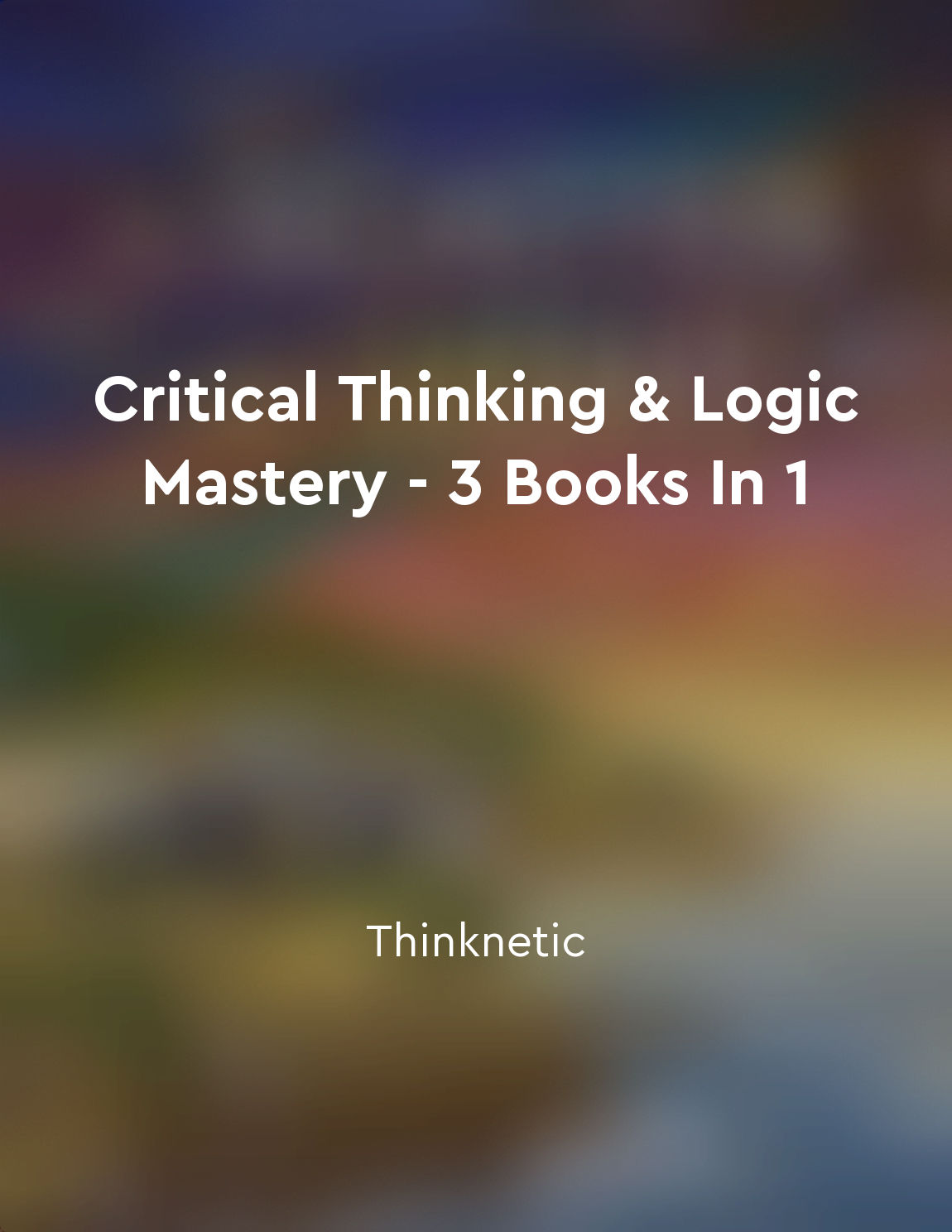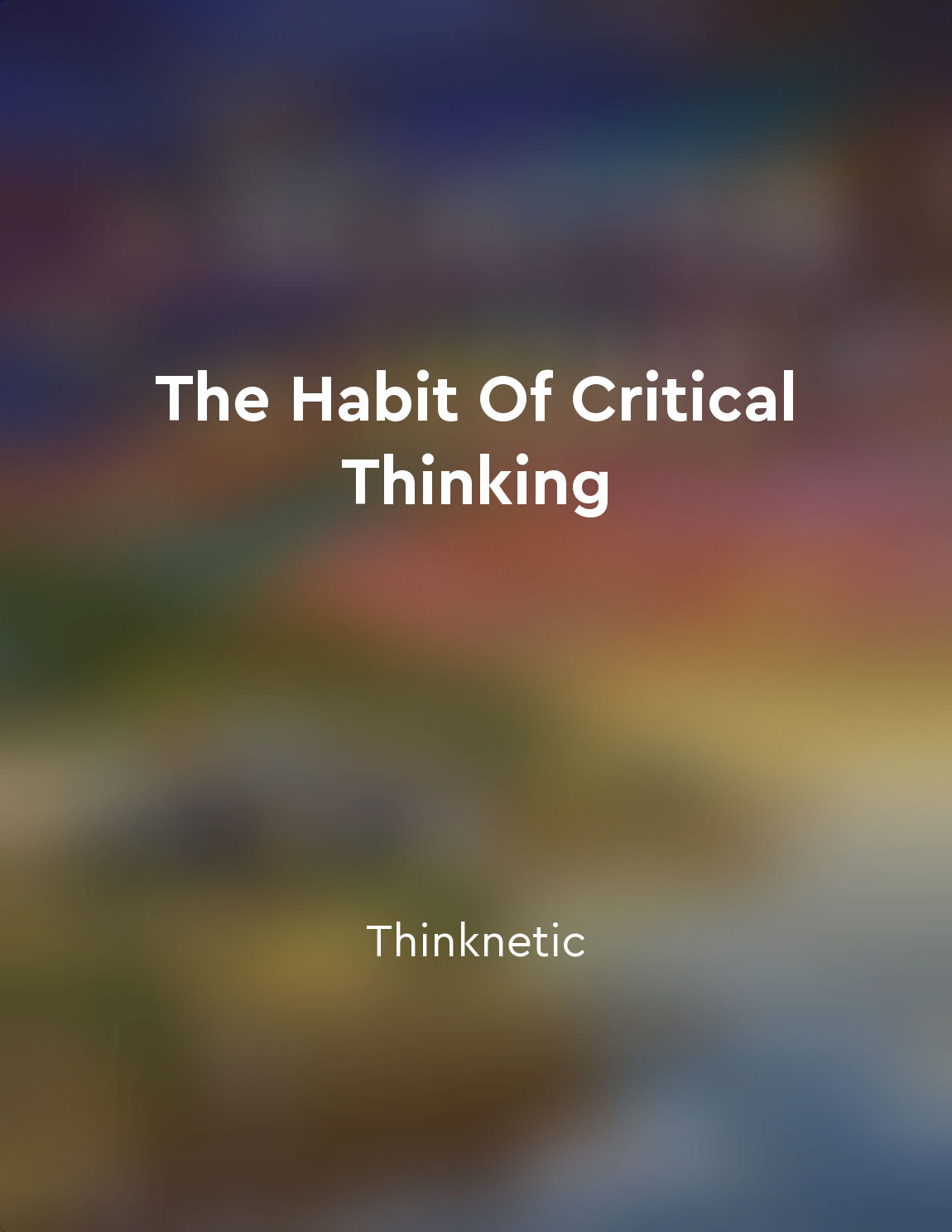Availability bias impacts judgment from "summary" of Judgment in Managerial Decision Making by Max H. Bazerman,Don A. Moore
Availability bias impacts judgment because people tend to judge the likelihood of events based on how easily examples come to mind. This bias leads individuals to overestimate the likelihood of vivid or memorable events, while underestimating the likelihood of less memorable events. For instance, when asked to estimate the number of words that begin with the letter 'r' versus the number of words with 'r' as the third letter, people are more likely to recall words that fit the first description, leading them to overestimate the former and underestimate the latter. Availability bias can also be influenced by media exposure, personal experiences, or recent events. When individuals are exposed to sensational news stories or vivid images, these events become more accessible in their minds and subsequently impact their judgment. For example, individuals may overestimate the likelihood of a plane crash after seeing news coverage of a recent aviation accident, even though statistically, plane crashes are rare events. Furthermore, availability bias can impact decision-making in various contexts, including managerial decision-making. Managers who are influenced by this bias may make decisions based on easily accessible information, rather than considering all relevant data. This can lead to suboptimal choices and missed opportunities for the organization. For example, a manager may overestimate the success of a marketing campaign that received a lot of media coverage, while underestimating the potential of a less-publicized but more effective strategy. To mitigate the impact of availability bias on judgment, individuals can take steps to consciously consider all relevant information, rather than relying solely on what is most readily available in their minds. By engaging in critical thinking, seeking out diverse perspectives, and challenging their assumptions, individuals can make more informed decisions that are less influenced by the biases that can cloud judgment.Similar Posts

Applying critical thinking leads to better problemsolving outcomes
When we engage in critical thinking, we are actively analyzing, evaluating, and synthesizing information to make informed decis...

Seek out diverse opinions
To truly think for yourself and arrive at your own conclusions, it is imperative that you expose yourself to a wide range of di...

Understanding your own values and goals is crucial for financial decisionmaking
To make sound financial decisions, it is imperative to have a clear understanding of one's values and goals. These serve as the...
Emotional responses: driving behavior
Emotional responses play a crucial role in driving behavior. Our actions and decisions are heavily influenced by our emotions, ...
Understanding individual money scripts is important
One must recognize the significance of understanding individual money scripts. These scripts are deeply ingrained beliefs and a...

Establishing boundaries
Establishing boundaries is a crucial aspect of protecting yourself from manipulation and exploitation. When you set clear bound...
Understanding our relationship with money is crucial
Our relationship with money is a complex and deeply ingrained aspect of our lives that influences our thoughts, emotions, and b...

Critical thinking is essential
Critical thinking is not just a nice-to-have skill in today's complex world; it is an absolute necessity. Without the ability t...
Cultivating a growth mindset can lead to clearer thinking
Having a growth mindset is crucial for achieving clarity in our thinking. When we believe that our abilities and intelligence c...

Overcoming biases requires selfawareness and discipline
To improve decision-making, individuals must first recognize that they are prone to various biases. It is crucial to acknowledg...
